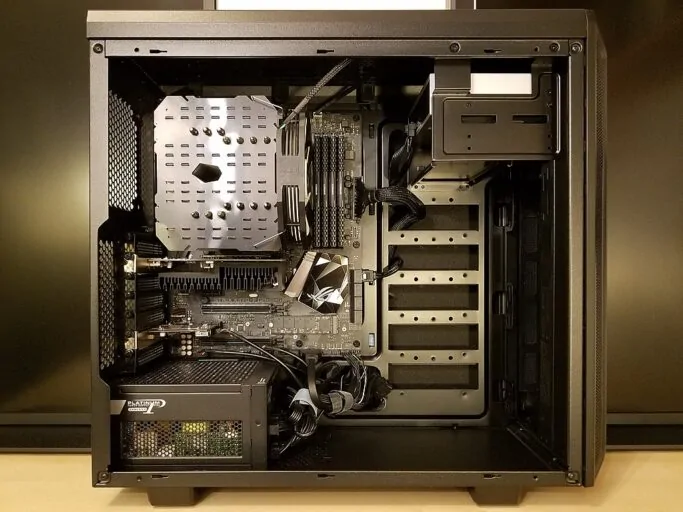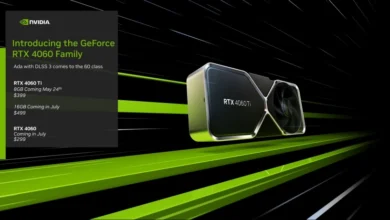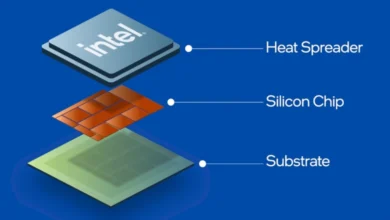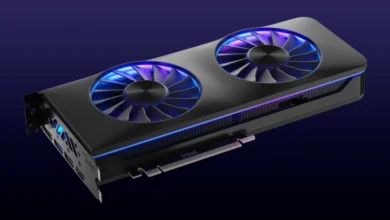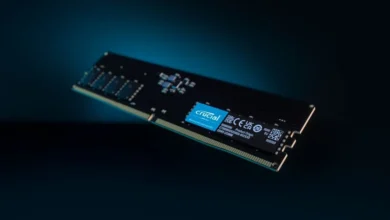AMD Ryzen 9950X / 9900X CPUs Get Bad Reviews In Gaming
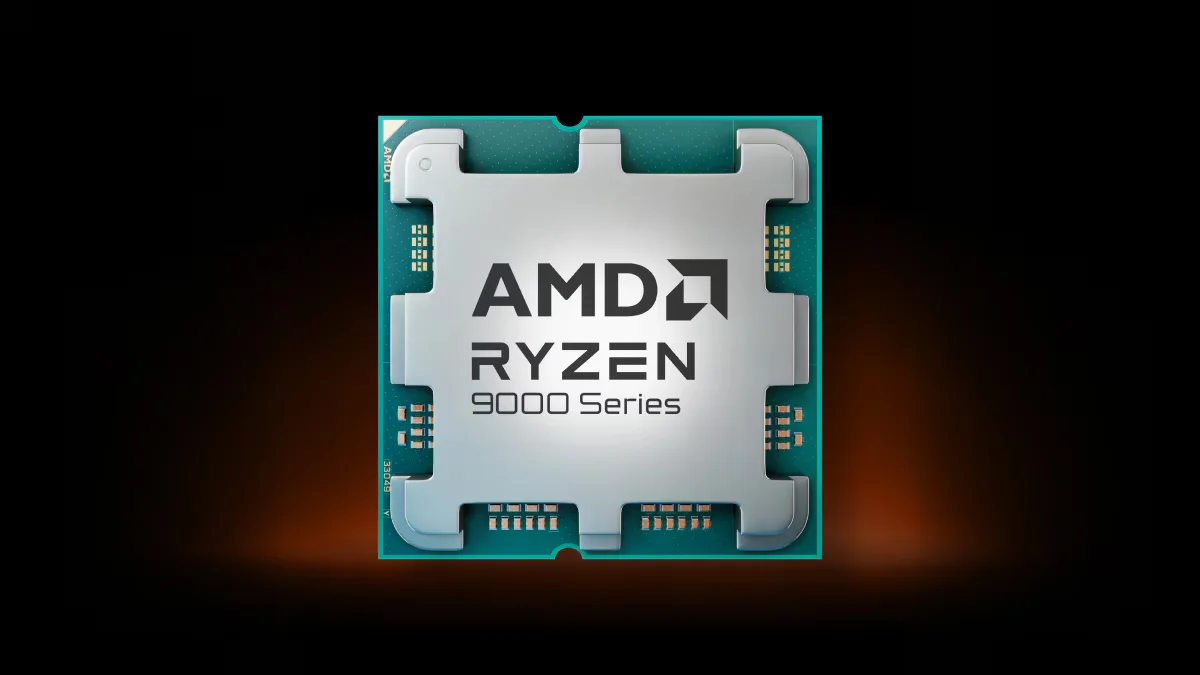
The reviews for AMD Ryzen 9 9950X and Ryzen 9 9900X CPUs are out. Both are getting bad reviews for gaming. It’s similar to Ryzen 9700X and Ryzen 9600X.
A few days ago, the reviews for the AMD Ryzen 7 9700X and Ryzen 5 9600X CPUs were out. Both the processors got very small gains in performance over their previous-gen Ryzen 7000 counterparts.
Except one outlet, Tom’s Hardware, most others found the performance of those two processors quite lacking in gaming. Though many found them to be quite efficient due to reduced official TDP. But, overall, they were disappointing.
Today, the reviews for the flagship AMD Ryzen 9 9950X and Ryzen 9 9900X are out. Let’s check some of them.
Ryzen 9950X & Ryzen 9900X Reviews
Tom’s Hardware
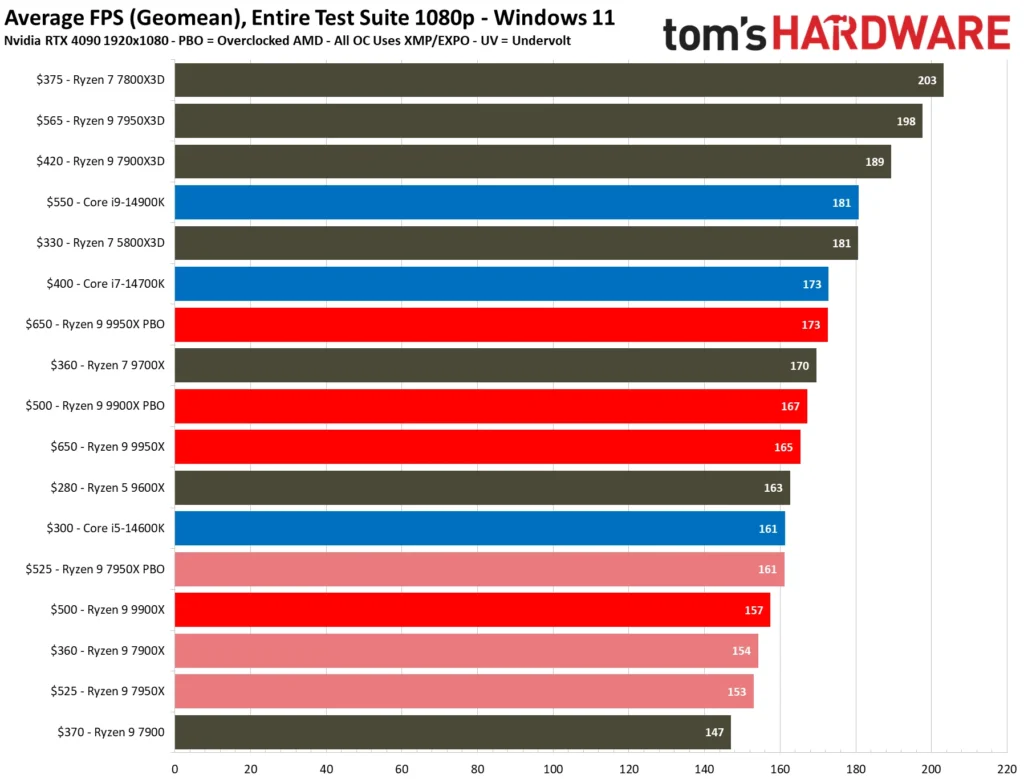
Tom’s Hardware reviewed the AMD Ryzen 9 9950X CPU. Though, its performance graph also contains Ryzen 9900X in it.
In terms of gaming performance at 1080p, Ryzen 9950X was just 8% faster than the previous-gen Ryzen 7950X, which is more disappointing than even Ryzen 9700X.
But that’s not alone. What’s interesting is that a $100 cheaper Intel Core i9-14900K ($550) is 10% faster than the more expensive Ryzen 9950X ($650). If that’s not enough, then a $400 Intel Core i7-14700K is 5% faster than Ryzen 9950X in their gaming tests.
Similar is the story with Ryzen 9900X. It’s just 2% faster than Ryzen 7900X in gaming. A $200 cheaper Intel Core i5-14600K ($300) is performing better than Ryzen 9900X ($500).
It’s only in productivity and application benchmarks that these two CPUs do exceedingly good.
In terms of power consumption, here too, Ryzen 9950X does good. Ryzen 9950X uses anywhere between 7-15% lesser watts than Ryzen 7950X in various applications.
Two things are interesting though. Tom’s Hardware used officially supported DDR5-5600 RAM in their tests, rather than AMD’s recommended DDR5-6000 RAM. Most other reviewers tested it with a DDR5-6000 RAM.
Second thing is, Tom’s Hardware is saying that AMD has introduced new core parking driver for these CPUs, which was earlier only for Ryzen 7900X3D and Ryzen 7950X3D. This information from AMD came way later during reviews.
Basically, because Ryzen 9950X and Ryzen 9900X come with two chips, they don’t perform great in games. So core parking disables one chip during gaming. However, Tom’s Hardware had big issues getting it to work properly. Including requiring OS reinstallation when changing CPUs.
TechSpot
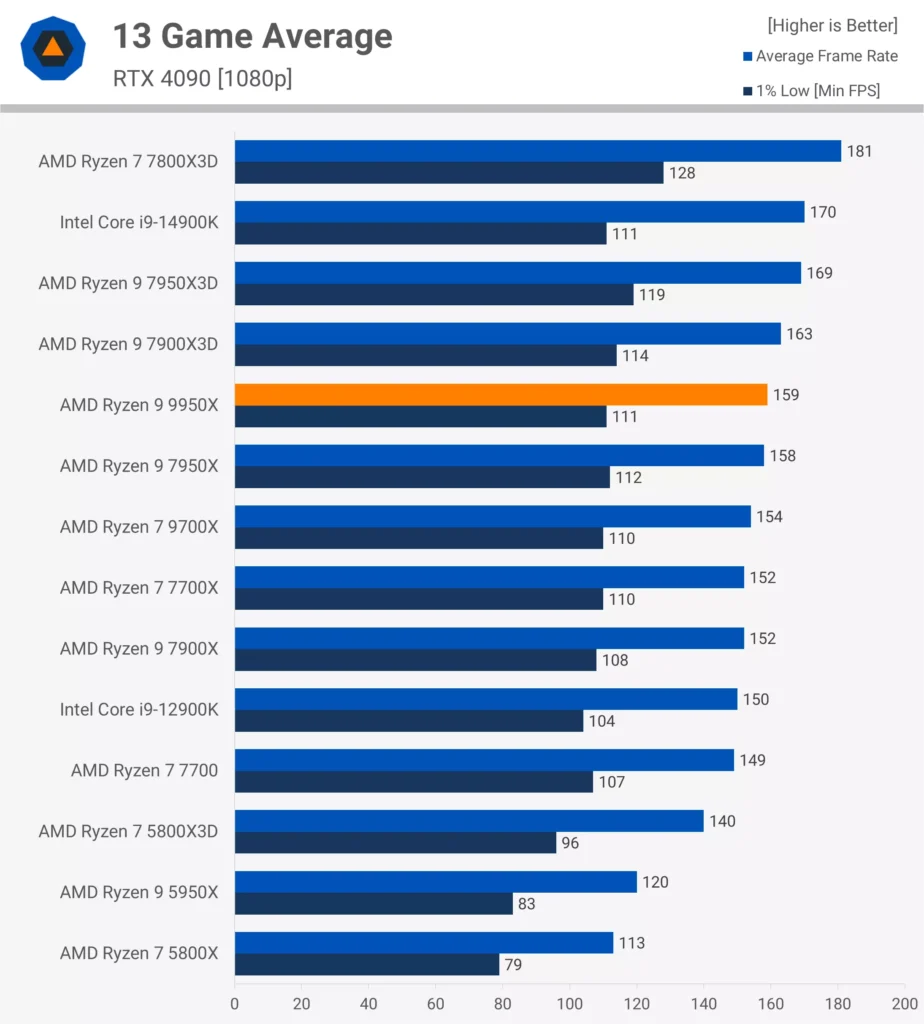
Steve Walton from Hardware Unboxed fame tested AMD Ryzen 9 9950X and posted it on TechSpot. Those who want to watch the review instead of reading it can do so here (YouTube).
In his review, he found Ryzen 9950X to be, guess what, 1% faster than Ryzen 7950X in gaming. That’s right. Just 1% faster in gaming over previous-gen. In some games, he even saw a performance regression, where Ryzen 7950X was faster than Ryzen 9950X.
In Cinebench, he found it to be just 4% faster while using the same amount of power. So no changes in power usage either.
In all, Steve called this CPU a significant disappointment and from a gaming perspective, a complete and utter flop.
He also mentioned how Ryzen 7950X was massively faster than Ryzen 5950X. In some workloads, the uplift in performance had reached 100% (double fast). So in that context, Ryzen 9950X does seem very bad in performance.
TechPowerUp
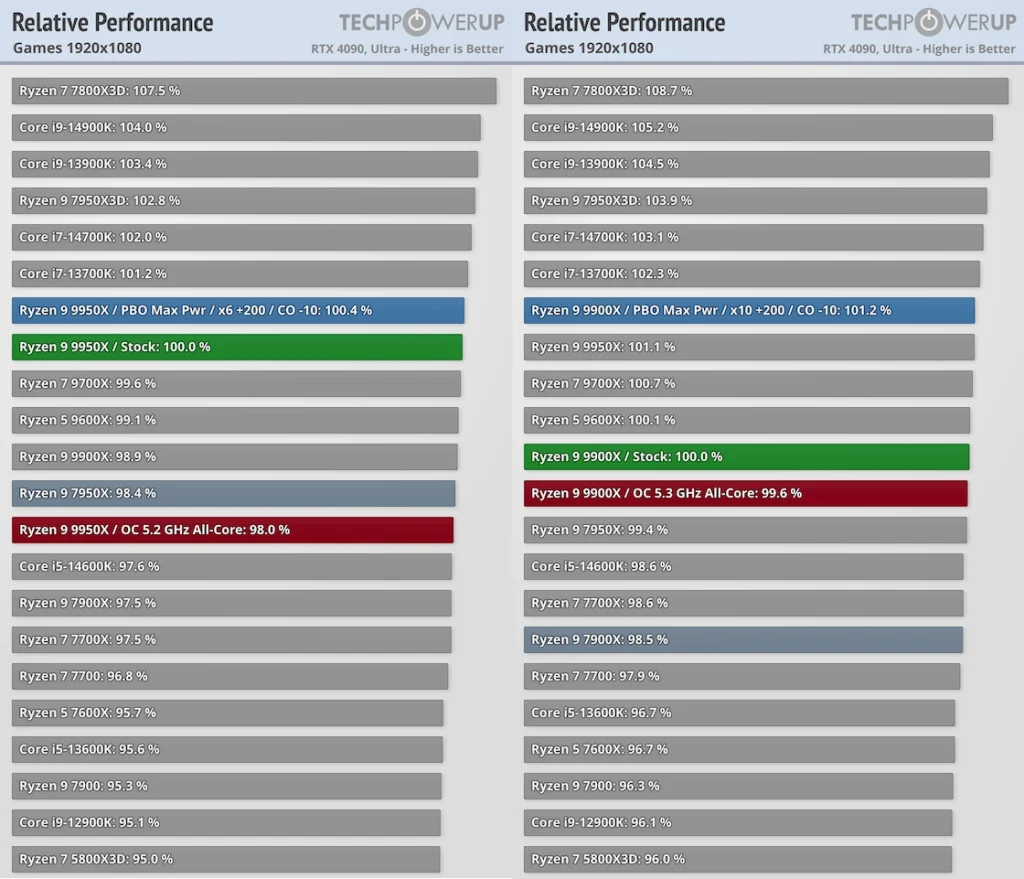
TechPowerUP reviewed both AMD Ryzen 9 9950X and AMD Ryzen 9 9900X.
In terms of gaming performance at 1080p (page 18), they found Ryzen 9950X to be just 2.6% faster than previous-gen Ryzen 7950X.
The Ryzen 9900X had a similar story. It was just 1.6% faster than the previous-gen Ryzen 7900X CPU in gaming performance at 1080p (page 18).
What’s even more funny is that both previous-gen Ryzen 7950X and Ryzen 7900X had better minimum FPS in gaming than the newer-gen Ryzen 9950X and Ryzen 9900X respectively (page 21).
In applications, both the CPUs did perform somewhat better. While Ryzen 9950X was almost 3.5% faster than Ryzen 7950X, the Ryzen 9900X was almost 4.5% faster than the Ryzen 7900X in overall application benchmarks.
The power consumption (page 23) too saw some improvements over the previous-gen counterparts. Ryzen 9950X consumed 14W less in single core tests, 40W less in multithreaded tests, 14W in overall application benchmarks, 12W less in gaming benchmarks and 5W less in overall idle PC benchmarks. Not big but something better.
Ryzen 9900X too was similar. It used 10W less in single core tests, 24W less in multithreaded ones, 10W less in overall application benchmarks, 4W less in gaming benchmarks and 3W less in overall idle PC benchmarks.
Interestingly, the temps differ with both the CPUs. While Ryzen 9950X was very efficient in Blender benchmarks, the temps clocked higher than Ryzen 7950X in gaming. However, Ryzen 9900X saw big improvements in Blender temps and minor improvements in gaming temps too.
Conclusion
Many other reviewers too tested both the processors for those who want to read or watch them. Our friends at Club386 tested both AMD Ryzen 9 9950X and Ryzen 9 9900X. AnandTech too tested both AMD Ryzen 9 9950X and Ryzen 9 9900X. Gamer Nexus tested just AMD Ryzen 9 9950X (YouTube).
As for our views. We are very disappointed with the AMD Ryzen 9000 CPU series. They offer hardly any uplift in performance in gaming.
They do good in applications and in offers better efficiency. Allowing some to suggest that these CPUs are preliminary designed for productivity software and datacenter CPUs.
What makes us sad is that AMD claimed big gaming performance gains. The above numbers do not agree to those claims. In fact, it’s AMD saying take a hike to gamers.
While many are saying wait for AMD Ryzen 9000X3D CPUs. We ask whether the performance gains are going to be similarly minimal with the X3D CPUs too. As AMD is making big claims with them too.
Interestingly, some reviewers are mentioning on Twitter (now X) that AMD Ryzen 9 9950X has 2.5 times higher latency than Ryzen 9 7950X. Which makes many think if there’s some chip interconnect issue.
There are also some rumors that AMD is considering to increase the TDP of both Ryzen 5 9600X and Ryzen 7 9700X CPUs. It’s likely because many reviewers found some increase in performance when power limits were removed.
But that’s unlikely to change the overall idea. AMD Ryzen 9000 non-X3D CPUs offer bad uplift in performance in gaming, they are good in application and better in efficiency. AMD could have done better here.
